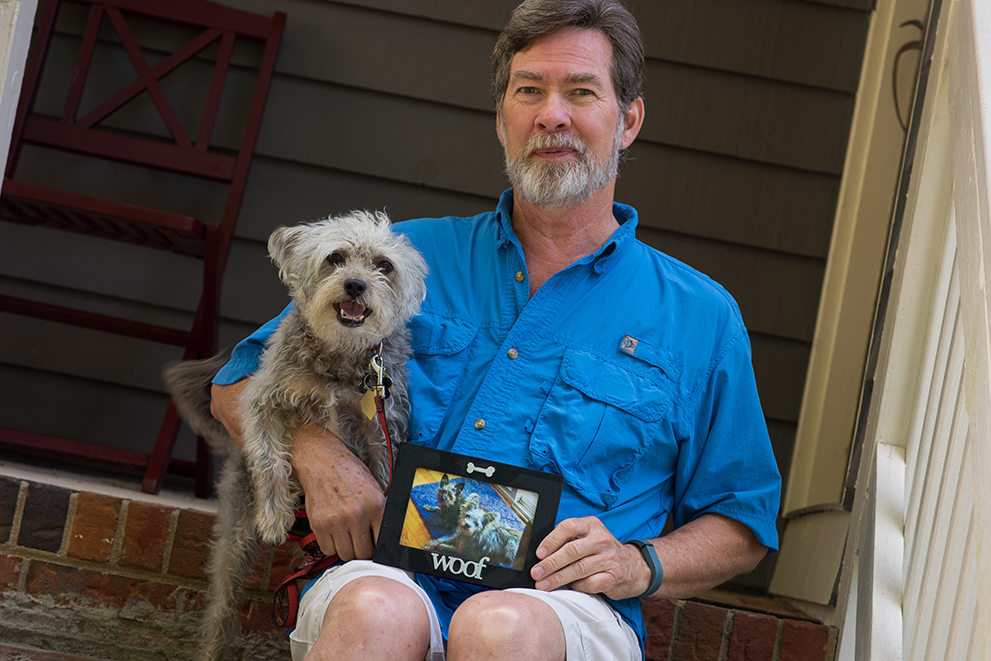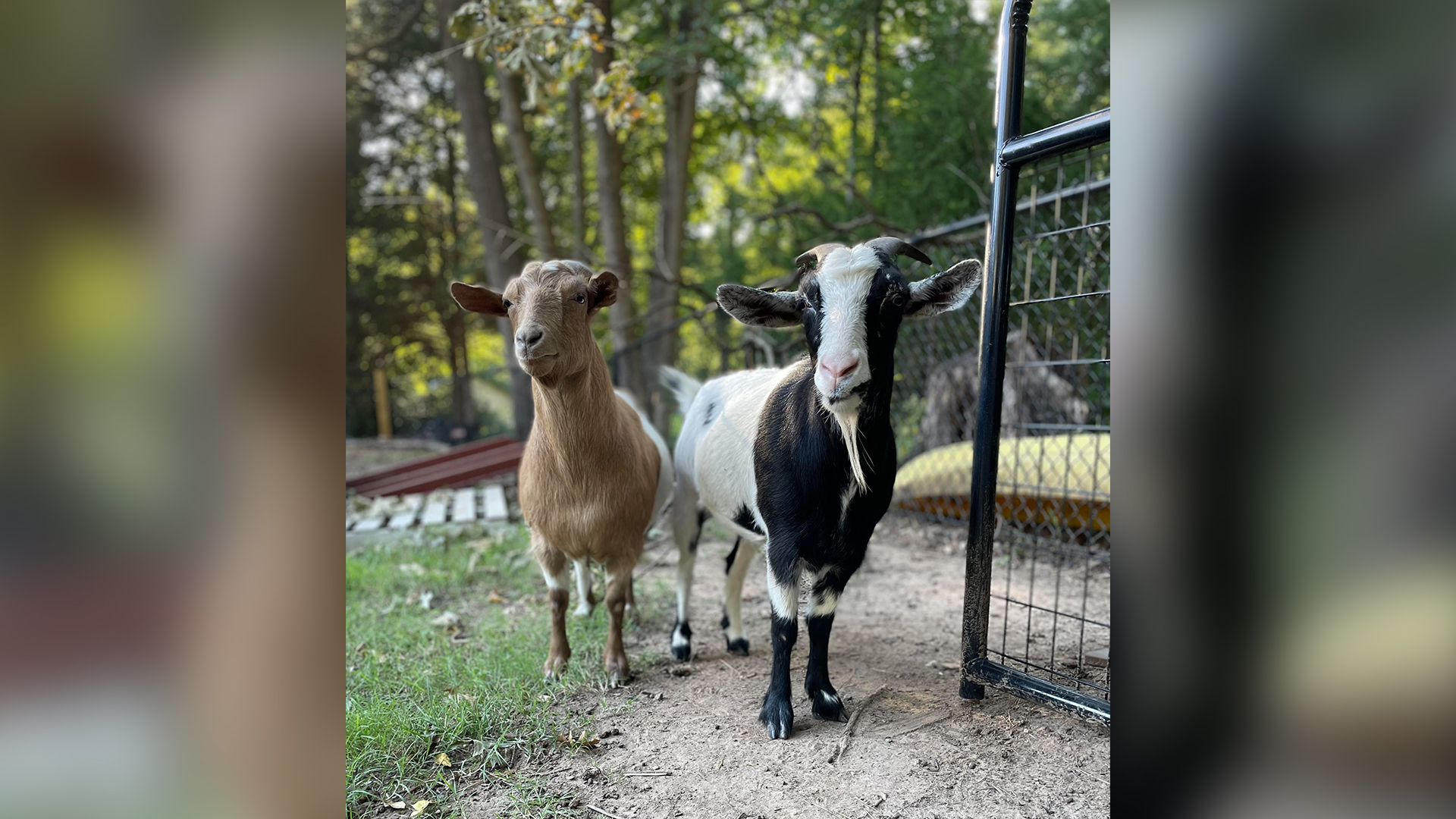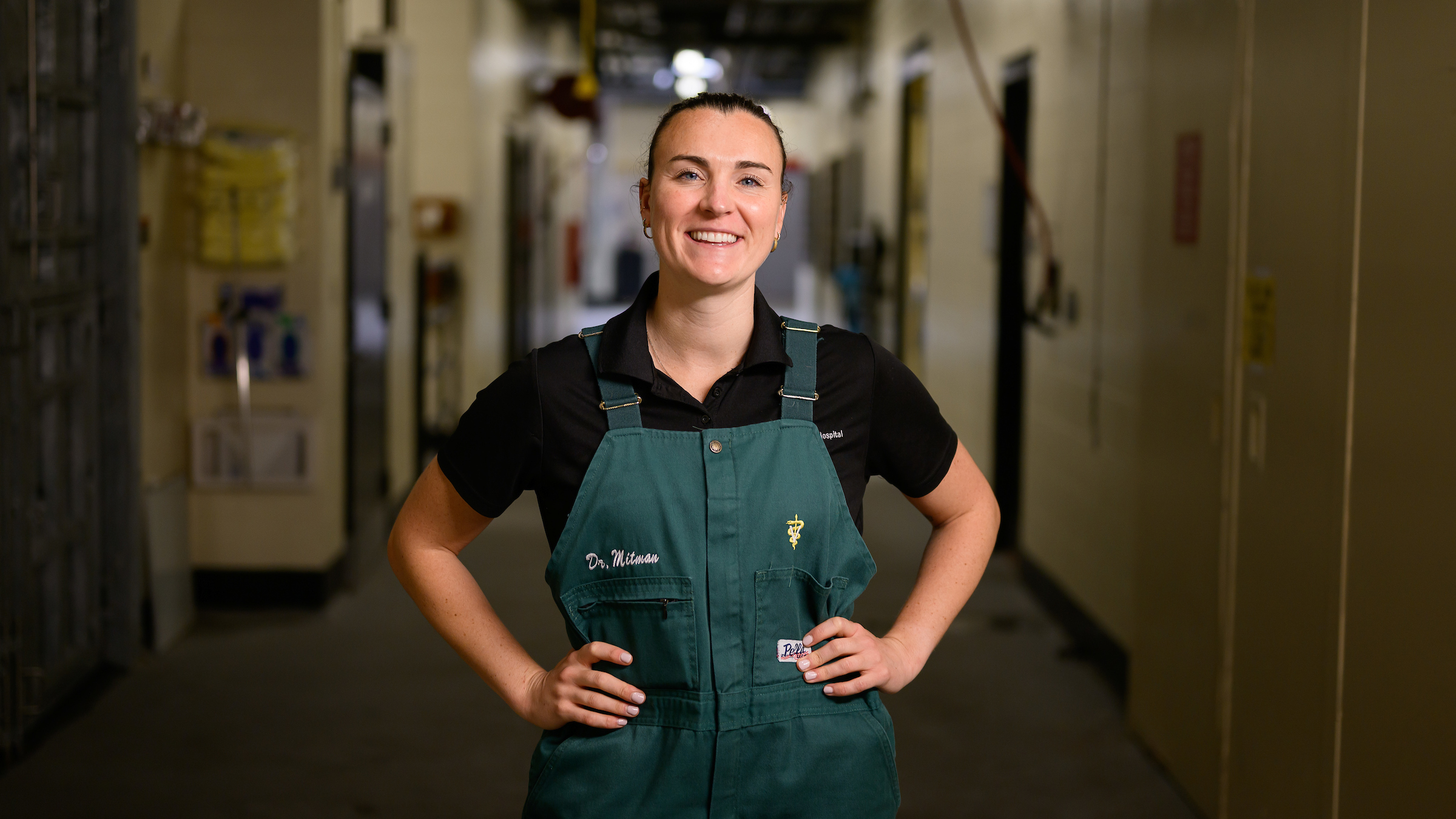Starla’s Lasting Impact

When Walter Shepherd of Durham adopted Griffin five and a half years ago from Chatham Animal Rescue & Education (C.A.R.E.), a dog who Walter describes as “a terrier mix,” the two became such great companions that he decided to go back and adopt Griffin’s mother, Starla, three months later. Camping, boating, going to the beach, going for walks and to the dog park — they did it all together. Walter is retired now, but has always led an active, busy life, and he and his smart, energetic and fearless friends were a great team.
By January of 2015, however, Walter noticed that Griffin and Starla were behaving differently during their walks. While Griffin was his usual inquisitive, high-energy self, Starla was more lethargic, and lagging behind. After consulting with his local veterinarian, Walter and Starla were referred to the NC State Veterinary Hospital to try to pin down a diagnosis and course of treatment. Neurologists at NC State performed a Magnetic Resonance Imaging (MRI) exam on Starla, along with spinal taps and a range of other sophisticated diagnostics, and determined that she was dealing with Immune-Mediated Meningomyelitis, an inflammation of the spinal cord and brainstem that was the likely cause of her discomfort and partial paralysis. The condition is very serious and debilitating.
“From the beginning,” Walter says, “the whole team at NC State was absolutely phenomenal. From the front desk, to the techs and veterinarians, everyone was compassionate, communicative, and professional. The resident, Kathryn Bray, was especially wonderful.”
Thanks to the diagnosis and treatment Starla received, Walter says that he, Griffin and Starla were able to have eight more months together before the condition became too much for Starla in August, 2015. In gratitude, Walter made a contribution to have a paver commemorating Starla (and Griffin) and the treatment she received at NC State in the College of Veterinary Medicine’s (CVM) Walk of Honor.
In July, he received a special appeal from the CVM seeking donations toward the purchase of a new, modern, state-of-the-art MRI machine that can provide more sharp, detailed images and result in a more effective diagnosis. Knowing how important the MRI had been for Starla, Walter again made a contribution toward the special MRI fund.
[pullquote color=”blue”]”I’m retired and can only do so much, but when I review my giving priorities, the NC State College of Veterinary Medicine will be primary because of what they do, and their potential for helping others.” [/pullquote]
“I wanted to do my part,” he says. “At one time there was no resource in the immediate area that could provide important, specialized care. I would have had to go to Virginia or Maryland or some other state. Without the hospital at NC State, local vets are on their own, and I think they are more comfortable knowing NC State is there. I certainly appreciate knowing that it’s there, and that my contribution might help other pets and their owners, as well.”
At one time, Walter was the assistant dean at the Brody School of Medicine at East Carolina University, and he believes the important services made available through the NC State Veterinary Hospital are reminiscent of the important medical services made available to the people of eastern North Carolina through the development of the Medical Center in Greenville. Each has an important role to play in the vitality and well-being of the community.
“I know what having the resources can mean when the need occurs,” he says. “Who would have thought that I would be supporting a new MRI at NC State? But I’m glad that it will be there if I need it, and if others need it. I know that they already have the best people in the country, and if I can help them get the best resources, I am happy to help. I’m retired and can only do so much, but when I review my giving priorities, the NC State College of Veterinary Medicine will be primary because of what they do, and their potential for helping others.”
~Steve Volstad/NC State Veterinary Medicine
- Categories:


